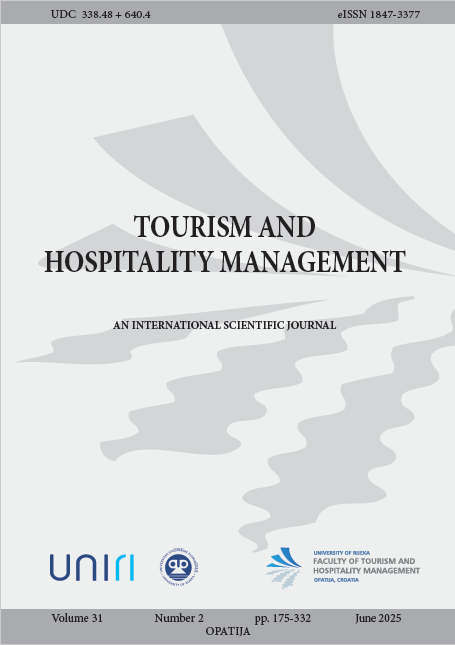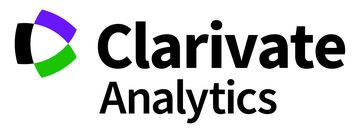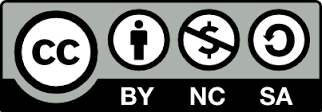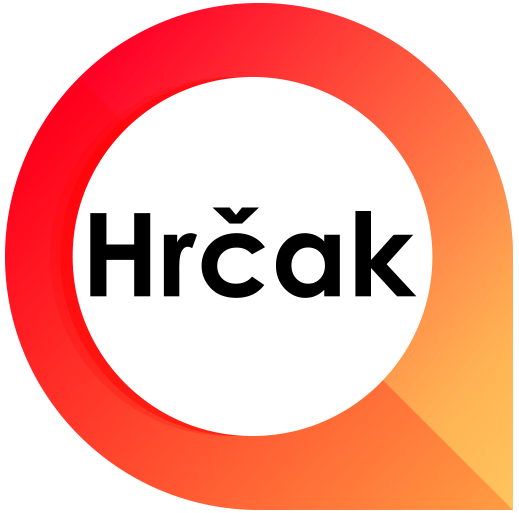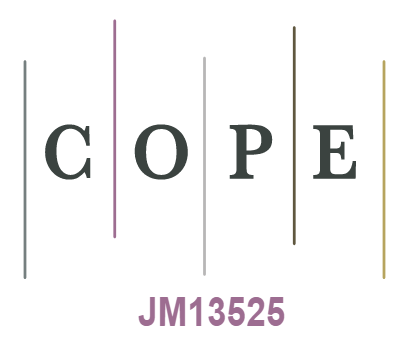(These guidelines are based on COPE’s Best Practice Guidelines for Journal Editors.)
AUTHORS
Authors should present an accurate account of their work performed as well as an objective discussion of its significance. Underlying data should be represented accurately in the paper. A paper should contain significant detail and references to permit others to replicate the work. Fraudulent or knowingly inaccurate statements constitute unethical behaviour, and are therefore unacceptable. The expected duties of authors are:
- to agree with journal’s open access policy which enables unrestricted access and reuse of all published articles
- to provide raw data for editorial review, and be prepared to provide public access to such data, if practicable and retain such data after publication
- to ensure that they have written entirely original work, and if they have used the work and/or words of others, that the citations or quotations are accurately conveyed
- not to use plagiarism in any its forms. Plagiarism takes many forms, from ‘passing off’ another’s paper as the author’s own paper, to copying or paraphrasing substantial parts of another’s paper (without attribution), to claiming results from research conducted by others
- not to submit the same research in more than one journal or primary publication. Submitting the same manuscript to more than one journal concurrently constitutes unethical publishing behaviour and is unacceptable.
- to make proper acknowledgment of the work of others
- to limit authorship to those who have made a significant contribution to the: conception, design, execution, or interpretation of the reported study
- to disclose any financial or other substantive conflict of interest that might be construed as influencing the results or interpretation of their manuscript
- to notify the editor or the publisher when discovering a significant error or inaccuracy in published work, to retract or correct the paper
- to sign a copyright agreement
- neither to pay a submission nor publication fee
- to use the publisher’s PDF if self-archiving the paper and to include a link to the publisher’s website.
EDITORS
Editors, members of the advisory and editorial board of our journal Tourism and Hospitality Management, are committed to fair and professional behaviour in all aspects of our publishing operations. Our goal is to publish original high quality papers which have value to the scientific community according to the highest possible standards. We expect similar standards from our reviewers and authors, and therefore request authors to sign an agreement to copyright when applying papers for application.
Honesty, originality and fair dealing on the part of authors, and fairness, objectivity and confidentiality on the part of editors and reviewers are among the critical values that enable us to achieve our aim.
Editors evaluate manuscripts for their intellectual content, without regard to the race, gender, sexual orientation, religious belief, ethnic origin, citizenship, or political philosophy of the authors. Submissions to the Tourism and Hospitality Management journal authored by the editors or the employees of the Faculty of Tourism and Hospitality Management (FTHM) or the editorial board and advisory board members will be handled in such way as to ensure unbiased reviews. Submissions authored by the editors or employees of the FTHM are considered by an appropriate advisory board member, whereby the advisory board member also chooses two reviewers, not employees of the FTHM.
The editors should take reasonable, responsive measures when ethical complaints have been presented concerning a submitted manuscript or published paper, in conjunction with the publisher. Such measures will generally include contacting the authors of the manuscript or published paper and giving due consideration to the respective complaint or claims made, but may also include further communications to the relevant institutions and research bodies, and if the complaint is upheld, the publication of a correction, retraction, expression of concern, or another note, as may be relevant. Every reported act of unethical publishing behaviour must be considered, even if it is discovered years after publication.
Editors should be accountable for everything published in the Tourism and Hospitality Management journal. This means the editors should:
- strive to meet the needs of readers and authors
- have processes in place to assure the quality of the papers that will be published
- champion and encourage freedom of expression
- maintain the integrity of the academic record
- support initiatives to reduce academic misconduct
- inform researchers about publication ethics
- preclude business needs from compromising intellectual and ethical standards
- always be willing to publish corrections, clarifications, retractions and apologies when needed
- strive to constantly improve the Tourism and Hospitality Management journal.
Editors of the Tourism and Hospitality Management journal:
- are accountable and should take responsibility for everything they publish
- should make fair and unbiased decisions, independent of commercial considerations and should ensure a fair and appropriate peer review process
- must not disclose any information about a submitted manuscript to anyone other than the corresponding author, reviewers, potential reviewers, other editorial advisers, and the publisher, as appropriate
- should adopt editorial policies that encourage maximum transparency and complete, honest reporting
- ought to guard the integrity of the published record by issuing corrections and retractions when needed and pursuing suspected or alleged research and publication misconduct
- should pursue reviewer and editorial misconduct
- need to make it clear to peer reviewers and authors what is expected of them
- must not use unpublished materials disclosed in a submitted manuscript in the editor’s own research without the express written consent of the author
- keep confidential privileged information or ideas obtained through peer review and not use them for personal advantage
- recuse her/himself from considering manuscripts in which he/she has conflicts of interest resulting from competitive, collaborative, or other relationships or connections with any of the authors, companies, or institutions connected to the papers
- need to require all contributors to disclose relevant competing interests and publish corrections if competing interests are revealed after publication. If needed, other appropriate action should be taken, such as rejection, the publication of a retraction or expression of concern
- should apply appropriate policies in place for handling editorial conflicts of interest, in accordance with COPE guidelines
- need to take all responsible steps to ensure the quality of the material published, by having systems in place to detect falsified data and basing decisions about the journal on relevant evidence of factors that raise the quality of reporting.
ADVISORY AND EDITORIAL BOARD
The publisher will establish a suitably qualified advisory and editorial board whose members can actively contribute to the development and good management of the journal. Members of advisory and editorial board are aware of their role of membership in the Tourism and Hospitality Management journal, their expected functions and duties are:
- to act as ambassadors for the journal
- to support and promote the journal
- pre‐reviewing and reviewing submissions to the journal
- to seek out the best authors and best work (e.g. from meeting abstracts) and actively encourage submissions
- to accept commissions to write editorials, reviews and commentaries on papers in their specialist area
- to actively attend and contribute to advisory and editorial board meetings
- to assess the effects of their journal’s policies on author and reviewer behaviour and revising policies, as required, to encourage responsible behaviour and discourage misconduct
- to ensure that any press releases issued by this journal reflect the message of the reported article and put it into context.
The editors are obliged to consult the advisory and editorial board members at least once a year to gauge their opinions about the running of the journal, inform them of any changes to the policies of the journal and identify future challenges.
The editors have the right to update the list of editorial and advisory board according to journal’s need.
REVIEWERS
The peer review process is an independent quality control procedure for articles submitted to journal. It is vital for enhancing the quality, credibility and acceptability of published research. Expected duties and responsibilities of the reviewers are:
- to assist the editors in making editorial decisions and to assist the author in improving the paper
- to notify the editors about the availability for prompt reviews
- to trait the manuscripts as confidential documents
- to conduct reviews objectively and express the views clearly with supporting arguments
- to identify relevant published work that has not been cited by the authors
- to inform the editor about any substantial similarity or overlap between the manuscript and any other paper
- not to use materials disclosed in a manuscript in their own research without the written consent of the author.
- to keep privileged information or ideas obtained through peer review confidential
- not to consider manuscripts in which they have conflicts of interest.
In addition, peer reviewers should be aware of all other detailed COPE Ethical Guidelines for Peer Reviewers and use them in the review process.
The journal will adopt procedures for detecting plagiarism in submitted items and will take actions in accordance with Committee on Publication Ethics (COPE: http://publicationethics.org/).



